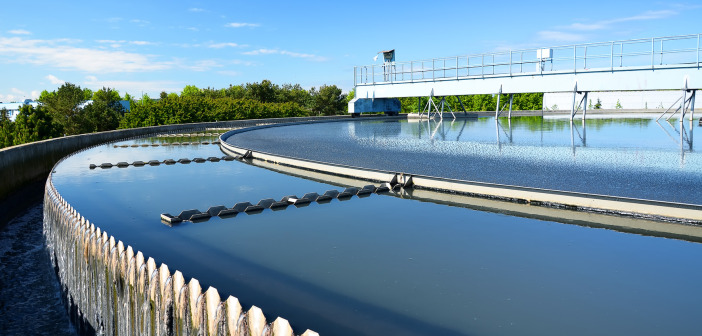Oil-water separators play an important role in helping keep pollution out of water across the world. After the BP oil disaster in 2010, oil-water separators were commonly discussed on the news as one of many options for cleaning up the massive environmental damage resulting from millions of gallons of crude oil spewing out into the ocean. These machines, however, have been around for a long time and have been used in a variety of ways to help the environment and keep the world’s limited water supply as clean as possible.
What does an oil-water separator do?
An oil-water separator works by utilizing the naturally occurring separation that happens in wastewater. In a situation where you have a gallon of wastewater, this will be comprised of oil, water, and solids. The solids are heavier and will sink to the bottom. Anyone who has seen an oil slick on top of a patch of water can attest to the fact that oil floats to the top of the water and is suspended there. In between these two substances will be the leftover water. The oil will be skimmed off, the solid wastes disposed of, and then the leftover water can go through further water treatment to remove any other undesired biological or chemical contaminants.
How are oil-water separators used?
According to Freytech Inc., on a regular basis, oil-water separators are used on ships to treat bilge water before being released into the ocean; this dramatically reduces the environmental impact of wastewater that is pumped into the ocean. Furthermore, these machines are used in many different industries as a method of treating hazardous wastewater before it is disposed of or further treated.
There are a number of different types of oil-water separators in the world today. This is largely because the molecular structure of waste varies to some degree, so some technology works better than others depending on the situation. This technology is not entirely new, however. The first oil-water separator was used in the 1930s at the Atlantic refining Company (ARCO). Since then, oil-water separators have been used to help sort various components out of used nuclear fuel. Actor Kevin Costner jumped on board to help further move this technology along after the Exxon Valdez disaster in 1989. Despite not having a background in science, Mr. Costner teamed up with the Lousiana-based Ocean Therapy solutions to the tune of over $20 million over a period of 20 years.
Oil Water Separators and Environmental Disasters
Most of the time, however, oil-water separators get a lot of attention when there is a large environmental disaster such as the Deepwater Horizon oil spill in 2010. In that situation, there were millions upon millions of gallons of crude oil spewing into the ocean for almost three months following an explosion that destroyed the Deepwater Horizon oil rig. This disaster is recognized as the worst oil spill in United States history. Oil-water separators were regularly touted as a solution for helping clean up this massive environmental catastrophy. Finding the right oil-water separator that could handle this sticky mess was not easy and took many efforts before finding a workable solution. Despite the incredible clean up efforts, the environmental impact of this disaster has yet to be fully measured.
Summary
With only a limited amount of water available in the world at any given moment, it’s absolutely critical that we do everything we can to ensure that water stays clean and usable to the extent possible. Responsible habits, including the use of oil-water separators by shipping and refinery industries helps encourage the continuity of clean water for generations to come. When disasters strike, technology like oil-water separators help reduce the damage to water, marine-life, wet lands, marshes, and beaches.




